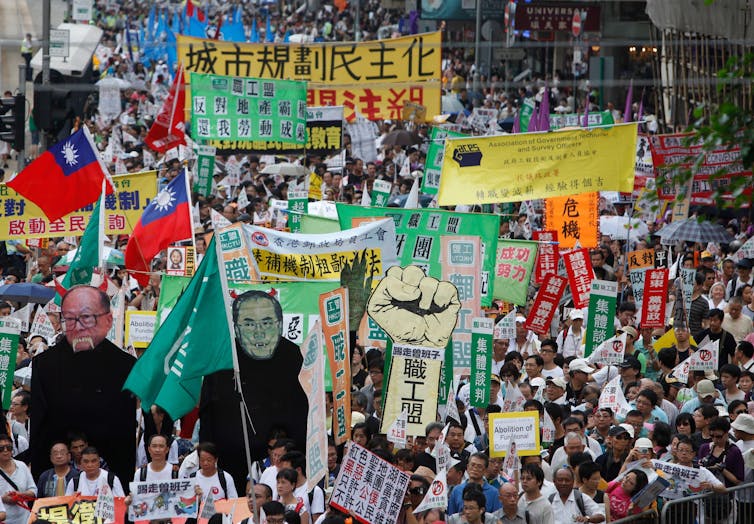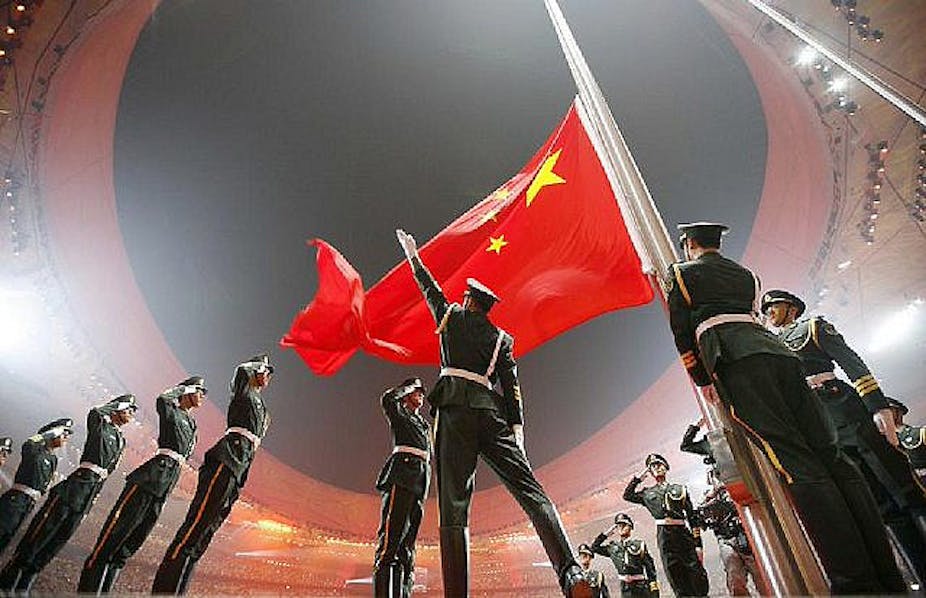The skepticism of contemporary China’s multilayered and painful efforts to achieve legal and political reform makes many wonder if democracy can really grow in the Chinese soil. This is such a haunting question not only for Western commentators but also for the Chinese leadership.
It is fundamentally important to realise that Chinese civilisation was established on a number of norms and practices such as limiting government power, accepting criticisms from various sources and selecting good officials via fair procedures.
These values match the underlining principles of modern democracy. But this history is so widely ignored that it must be re-discovered.
Chinese culture
A conventional examination of China’s current reform often ascribes the huge difficulties to the nation’s cultural origin.
We may, for example, link corruption with the Chinese concept of guanxi (relationships or personal ties).
It’s widely believed that guanxi is incompatible with rule of law, a reform theme that China tries to embrace.
This argument dismisses the fact that guanxi, when being used to gain improper, unfair or illegal interest, is fundamentally against Chinese traditional norms and political practice.
Re-examining history
One of the most typical examples refers to China’s imperial examination system known as Keju. Created in the 7th century, it was the channel of selecting best government officials through a fair and transparent examination system open to all, sometimes including foreigners.
Guanxi played almost no role in this vital system that had underpinned the Chinese civilization for over 1500 years.
In 1949, a renowned anthropologist Francis L. K. Hsu conducted research on almost 3,000 famous Chinese historical figures and concluded that political achievements in an upper class family normally could not last for more than two generations.
A study by Robert Marsh in 1961 shows government officials’ offspring had no obvious advantages over those born in normal families with regard to imperial examination and subsequently taking government positions.
These examples, among many others, suggest that guanxi was not supposed to be an obstacle to a fair system.
This implies that a better understanding of China’s capacity for future reform must start from examining the nation’s history and culture from a holistic perspective, which is so widely ignored.
Legacy of the Qing dynasty

Qian Mu, one of the landmark scholars in 20th-century China, wrote a famous book on China’s history of political system. He said the spirit of Chinese values had been systematically lost since 1644 when Manchu established the Qing dynasty.
To maintain their rule, the Qing devised mechanisms to grant emperors stronger power, suppress free thinking and stifle sea trade and new technologies.
In sharp contrast, by 1644 some interesting modern elements such as parliament, industrialisation and freer thinking had been emerging in China. This was witnessed by substantial contacts between the Chinese elites and the European Jesuits, who highly praised China’s indigenous achievement.
But blaming Qing’s ruling is naïve and irrational. Pre-modern societies were sadly full of wars and conquests. It is, however, extremely unfortunate that during the Qing period China didn’t modernise at the same pace as Europe and was soon left behind.
The Qing tried quite hard to modernise itself after the 1860s. However, overall the dynasty has left China with many problems that are symptoms of its ruling.
Since the collapse of the Qing in 1911, China has gone through frequent domestic wars, tremendous sacrifice in the Second World War and Mao’s devastating Cultural Revolution – to name only a few.
Confidence in reform
Therefore, what Deng Xiaoping and his followers have inherited is not merely Mao’s failure but the legacy of China’s history of the last 300 years. This burden is too heavy to handle.
Moral decline, poverty, overpopulation, poor education, and disadvantages in the global value chain are all combined aftermaths of China’s recent past.
But if we re-examine China’s history before 1644, we can and should re-build our confidence in China’s capacity of modernising itself today, in that the Chinese culture is not at odds with modernity.
Of course, each country’s democratic practice cannot possibly be identical. Even the democratic system practiced worldwide is expected to be reformed after the global financial crisis.
Today, China faces challenges but also opportunities to design its own democratic system.
If we believe China has created an economic miracle, then we know it can achieve other reforms. Perhaps we need to give China a bit more time.

